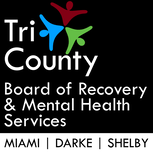Treatment Options
|
TREATMENT FOR SUBSTANCE ABUSE
The goal of drug abuse treatment is to stop drug use and allow people to lead active lives in the family, workplace, and community. One continual challenge, however, is keeping patients in treatment long enough for them to achieve this goal. That is why finding the right treatment for a person's specific needs is critical. Drug abuse treatment is not "one size fits all." Treatment outcomes depend on the:
Family and friends can play important roles in motivating people with drug problems to enter and remain in treatment. However, trying to identify the right treatment programs for a loved one can be a difficult process. To help, the National Institute on Drug Abuse (NIDA) created this brief guide containing five questions to ask when searching for a treatment program:
TREATMENT FOR MENTAL ILLNESS
Mental illness and behavioral disorders come in many forms and, because these involve the function of the brain, are among the most complex challenges in medicine. New treatment modalities are continually investigated and tested, and it often takes a combination or sequence of treatment types to address these issues. The National Institute of Mental Health website lists categories of mental health topics. However, individuals are cautioned against attempting a diagnosis without consulting a mental health professional or physician, and treatments should NEVER be attempted except under the supervision of a psychiatrist or certified therapist. Treatments can be grouped into three broad categories: If you suspect you or someone you know suffers from a mental illness, consult a medical or mental health professional. |
24-Hour Crisis Hotline 800.351.7347
If you or someone you know is in crisis and needs help,
call the Tri-County CRISIS Hotline 800.351.7347 The 24-Hour Crisis Hotline serves residents of Miami, Darke, and Shelby counties in Ohio. In crisis but can't talk? Crisis Text Line Text 4Hope to 741741 Suicide and Crisis Lifeline Call or Text 988, chat at 988lifeline.org |

Tri-County Board of Recovery & Mental Health Services
1280 N. County Road 25A, Suite #1 Troy, OH 45373 937.335.7727 | FAX 937.335.8816 Email us at [email protected] M-F 8:00AM - 4:30PM. Closed federal holidays. Services provided are funded in whole or in part by your continued support of the Tri-County Mental Health Levy.
The Tri-County Board of Recovery and Mental Health Services is an Equal Opportunity Employer |
